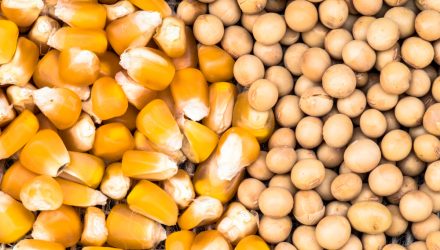When it comes to corn and soybeans, Bolivia and especially Brazil are top producers globally. The governments of both countries agreed to a Memorandum of Understanding that focuses on expanding cooperation in biofuels, biotechnology, and fertilizer trade.
In particular, the inclusion of biofuels should help prop up demand for corn and soybeans, especially if biofuels continue to catch on with other countries. The push to reduce carbon emissions is forcing more countries to seek alternate sources of energy and the use of biofuels could stand to benefit.
“According to the agreement, both governments also commit to contributing to the development of regulatory, technological and methodological policies in determining prices for the fertilizer and biofuels industry in Brazil and Bolivia,” a BNamericas announcement said “In addition, technical visits, internships, trainings, symposiums, seminars and other activities related to fertilizers and biofuels, including information exchange, will be carried out.”
Investors looking to not only add agricultural commodities like corn and soybeans to diversify their portfolios with alternative assets can also add growth. This is especially the case if, as mentioned, more countries become more receptive to the use of biofuels as an alternate energy source to reduce their carbon footprint.
Get Corn, Soybeans ETF Exposure
While investors can add futures contracts in corn and soybeans to capitalize on potential price increases, exchange-traded funds (ETFs) can also offer unfettered exposure to these commodities. They also help take the complexity out of contracts by offering them in a convenient, yet dynamic ETF wrapper. They can be used in both long- and short-term investment horizons.
When it comes to corn specifically, consider the Teucrium Corn Fund (CORN). The fund tracks three futures contracts for corn traded on the Chicago Board of Trade. It includes 35% second-to-expire contracts, 30% third-to-expire contracts, and 35% December following the third to expire. The various contract exposures help the fund limit the negative effects of rolling contracts, especially during a market in contango.
When it comes specifically to soybean exposure, investors may want to consider using the Teucrium Soybean Fund (SOYB). The fund provides similar exposure to what investors could obtain by trading in soybean futures contracts. Like CORN, SOYB is also an option for longer-term buy-and-hold investors who want to diversify their current portfolios with commodities exposure. Additionally, if short-term traders want to take advantage of upside in soybean prices, SOYB can serve that purpose as well.
For more news, information, and analysis, visit the Commodities Channel.

